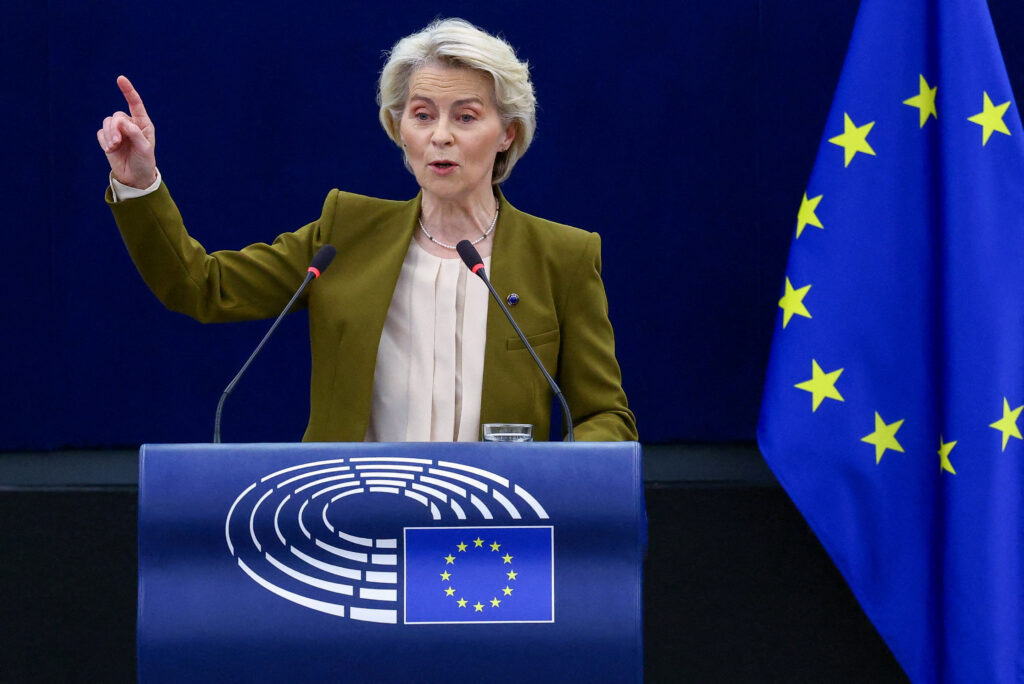European Commission Announces New Sanctions on Russia, Accelerating Gas Phase-Out
On September 22, 2025, the European Commission announced a new package of sanctions on Russia, accelerating the phase-out of Russian gas imports and targeting key financial and energy sectors.

The European Commission unveiled its 19th package of sanctions against Russia on September 22, 2025, marking a significant escalation in the bloc’s efforts to sever economic ties with Moscow over the ongoing war in Ukraine. The centerpiece of the new measures is an accelerated ban on Russian liquefied natural gas (LNG) imports, now set to be fully implemented by January 1, 2027—one year earlier than previously planned. European Commission President Ursula von der Leyen stated that the move is designed to cut off a critical revenue stream sustaining Russia’s war economy, emphasizing, “The revenues from fossil fuels sustain Russia’s war economy. We want to cut these revenues.”
Accelerated Gas Phase-Out and Sanctions Scope
The proposal, which requires unanimous approval from all 27 EU member states, aims to halt Russian LNG imports into European markets and close financial loopholes that have allowed Moscow to evade previous sanctions. The package also targets Russia’s so-called ‘shadow’ tanker fleet, cryptocurrency platforms used for sanctions evasion, and third-country entities—including refineries and oil traders in China—found to be in breach of sanctions. Additional measures focus on Russian and Central Asian banks and the tightening of export controls on dual-use goods that could support Russia’s military.
The European Commission’s decision follows mounting pressure from U.S. President Donald Trump, who has called on European countries to end Russian energy imports and increase tariffs on China. Trump’s administration has made clear that Washington’s support for NATO and broader transatlantic security is contingent on Europe taking a harder line against both Moscow and Beijing. According to senior EU officials cited by OilPrice.com, the only significant internal resistance comes from Hungary and Slovakia, both of which have historically maintained closer ties to Russia.
Geopolitical and Economic Implications
The accelerated phase-out of Russian gas is expected to reshape Europe’s energy landscape. Since the start of Russia’s invasion of Ukraine in February 2022, the EU has already reduced its share of Russian gas imports from 45% to 19%, largely by increasing purchases of liquefied natural gas from the United States and Qatar. The new sanctions could further increase the bloc’s reliance on U.S. energy, a point of concern for some European policymakers wary of overdependence on a single supplier. The EU’s recent pledge to buy $750 billion worth of U.S. energy underscores the scale of this shift.
Despite the sharp reduction in Russian energy imports, several EU countries—including Spain, Belgium, the Netherlands, and France—continue to import Russian LNG. Gas transported through the TurkStream pipeline also reaches Slovakia, Hungary, and Bulgaria, highlighting the challenges of achieving full consensus within the bloc. Kremlin spokesperson Dmitry Peskov dismissed the EU’s latest initiative, claiming it would have no impact on Russia’s position or its war strategy.
Enforcement Challenges and Broader Sanctions
The new sanctions package also addresses enforcement gaps that have allowed Russia to circumvent previous restrictions. By targeting the shadow tanker fleet and tightening controls on cryptocurrency and dual-use goods, the EU aims to close off alternative revenue streams and supply channels. The package further extends to entities in China and Central Asia, reflecting growing concerns about third-country actors facilitating Russian sanctions evasion. EU foreign policy chief Kaja Kallas stated that the measures are designed to “speed up the phase-out of Russian liquefied natural gas” and to “go after those who fuel Russia’s war.”
While the proposal still faces hurdles—most notably the need for unanimous approval among member states—it signals a clear intent by the European Commission to intensify economic pressure on Moscow and accelerate Europe’s transition away from Russian energy. The coming weeks will reveal whether the bloc can overcome internal divisions and deliver on its ambitious timeline for a complete Russian gas phase-out.
Sources
-
OilPrice.com
Trump Presses Europe to Cut Russian Energy and Tar...
-
Verdict
EU proposes bringing forward Russian LNG ban by on...
-
MFame
New EU Sanctions Package Targets Russian LNG and F...
-
Support4Partnership
'We really need to act': EU breaks taboo with firs...
-
Hellenic Shipping News
Under pressure from Trump, EU plans to bring forwa...
-
Trading Economics
EU Proposes Early Ban on Russian Gas in New Sancti...
-
gCaptain
Macron Says Europe's Russian Energy Imports Are 'M...